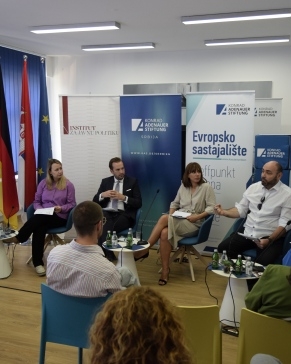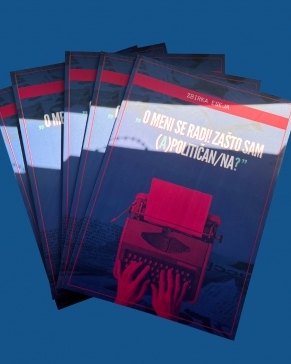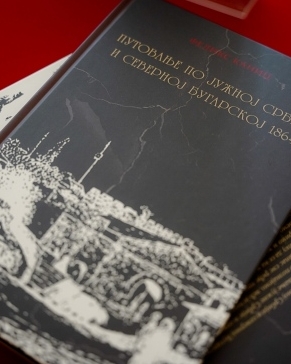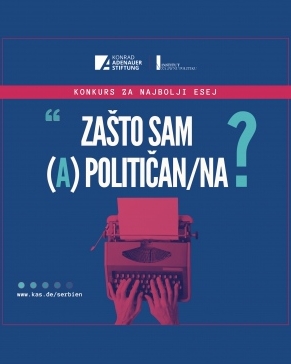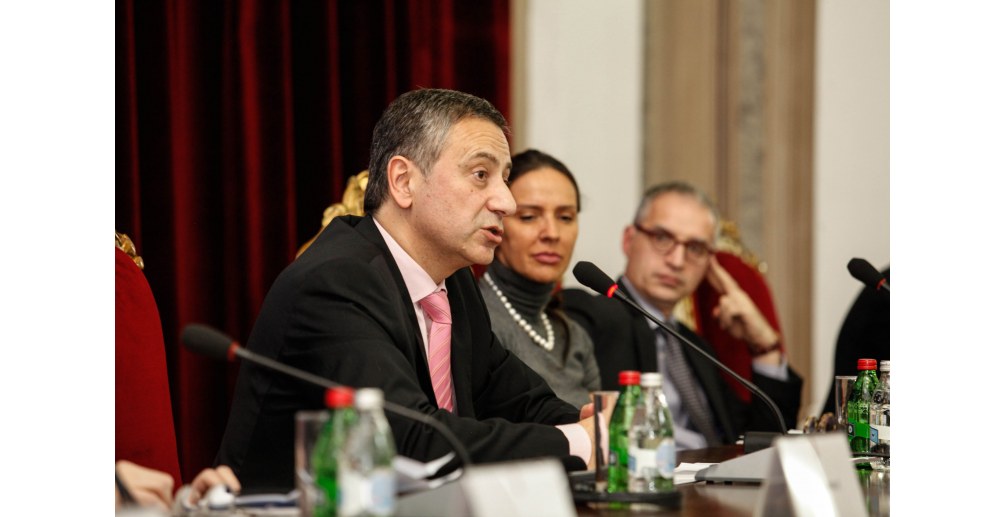
On the international conference “European Union and Western Balkans 2015-2020: Partnership opportunity and mutual concern” the academic panel “The role of universities in European and regional integrations” was held, on which public could hear opinions of prominent professors and rectors of leading universities of Western Balkans.
Opening this panel, speaker and moderator prof. Nikola Samardžić opened several questions regarding them essential in this complex subject: are the universities in the region too passive in relation to the government and public in the process of European integration, which is not only political negotiation, but also the process of encouraging general value policy, improving standards in the rule of law and human freedom domains, the development of economy, trade, finance, science and culture? Why does the universities generates extremist groups among the socially and politically active students, instead of directing them into the space of political center? If the universities in the region are at the same time institutions of social protection, why they become recruitment centers of secular or religious extremist groups, in terms of high unemployment and poor economics? Are democratization of education and radicalization of policy related to each other? Is the EU really form of the future development of our universities, or an obvious mutual incompability of the system? If the teachers and students are skeptical in relation to the Bologna process, is the alternative clear and are the relevant ministries, regulatory bodies and governments negotiating about that alternative? Is the economical, social or ideological dissatisfaction of teachers and students directed in terms of resistance to the EU and European values and in whose interest it would be, if that is true? Whether and how universities will become active and effective partner to the Government in the negotiation process?
Ambassador Aleksandar Andrija Pejović made a factual report about participation of the Montenegrin academic community in the negotiation process and about general social development that is happening parallel with the negotiation process. Also he noticed that the negotiation process is not only harmonization of legislation with acquis, but the coherence of the whole system in which the Western Balkan countries are working for almost two decades. Pejović said that Montenegro made great integrational progress in a very short time, and that it’s experience in the organization of the negotiation process can be very valuable for other countries in the region. Speaking about dynamics of enlargement, he said that negotiation process contributes to the creation of the general positive image of the Western Balkans.
Goran Svilanović warned about the real state of the institutions and universities themselves in the region and compared that condition with the attitudes of the European public, which are partly skeptical about further expansion of the EU on the economically undeveloped and politically unstable countries of the Western Balkans. A huge problems are undeveloped industrial and technological potentials of the Western Balkan countries, their negative trade balance and unfavorable structure of exports, added Svilanović. The negotiation process is extremely complex, especially in light of the political willingness of the remaining non-integrated Western Balkan countries to initiate and carry out reforms. The integration process is demanding and expensive for both sides, EU member states and countries that negotiate, and there is a question about expression of the electorate in the EU member states during the accession of new member states.
Prof. Radmila Vojvodić pointed out all specifics of the University of Montenegro in political and social relations that relates to the challenges of a relatively young institution in a small country where the market knowledge and manpower are fluctuating and unpredictable. The role of the university is not only technical support to the negotiation process, but also the responsibility for the future sustainable development in the fields of higher education, science and labor markets. The point of integration is in the greater mobility of students and teachers, which would contribute to faster regional integration of the Montenegrin society.
Prof. Ivanka Popović recalled on the role of the University of Belgrade in building the institutions and common educational space that has to be revitalized in process of European integration. The mobility of teachers and students and inclusion of the University of Belgrade in European projects are one of the specific contributions to the negotiating process. That process of negotiation should involve universities, the University experts or those who gained their knowledge and experience at the University of Belgrade.
Prof. Stevan Lilić summarized the most important messages of this panel. He particularly emphasized speed and dynamic changes that accompany the process of negotiation and integration. The challenge of modern processes is in technological progress, which escapes the perceptions of each active generation, even those which belong to the youngest student population, especially in the light of the role of the University in the negotiation process and the general support of state system and the specific requirements of the labor market, technology and innovation.

